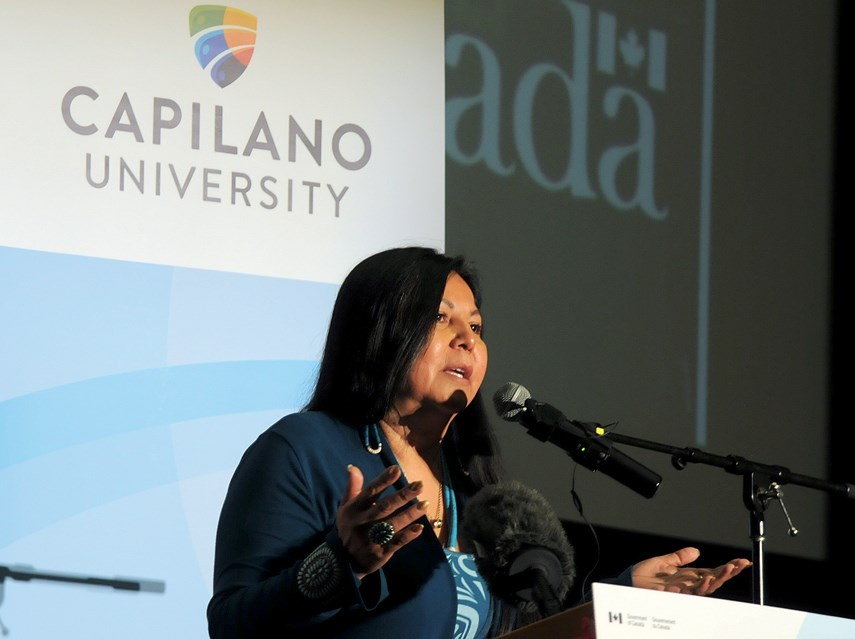This story has been amended since first posting.
Capilano University will soon be hosting a launching pad for Indigenous tech and creative businesses, a first of its kind in Western Canada.
The federal government announced $1.9 million in funding for the university to establish the Indigenous Digital Accelerator Centre on Wednesday.
“It sounds really amazing and cool because it is,” said Ted Gervan, dean of the faculty of fine and applied arts.
The accelerator is intended to take nascent-stage companies led by Indigenous people and provide hands-on technical advice and mentoring from established industry professionals and Indigenous elders.
The accelerator has set a goal of finding 10 to 20 start-ups to help grow over the next three years, create 100 Indigenous jobs in the next five years, and opportunities for student participation.
“What I’m hoping our role will be is to link people who are already geniuses, that are doing brilliant programs … with those other people who have gone before us and are doing amazing work,” said Shane Kennedy, CEO of IndigenX, a digital web and video production and publishing company that’s already signed on to help.
Jonathan Wilkinson, MP for North Vancouver, said the government selected the program for funding because it would help ensure a steady supply of tech workers, which the economy needs, and to correct the problem of Indigenous under-representation.
“It is fitting that we are on traditional territory because we are here to support the next generation of Indigenous visionaries, storytellers and digital entrepreneurs,” he said.
Before politics, Wilkinson worked in a clean tech accelerator where he helped entrepreneurs in developing their business plans, prototyping, marketing, and finding partnerships.
“We will need to harness the full power of our workforce, including women, youth and very certainly Indigenous peoples. Today’s investment should help us exactly with that.”
Doreen Manuel, director of the Nat and Flora Bosa Centre for Film & Animation, said the kind of torture she endured in residential school is one of the major factors that keeps other Indigenous people out of the digital and creative industry. But, with Wednesday’s announcement, Manuel predicted that would change.
“When you’re in that much trauma, it’s hard to create art,” she said. “The whole industry is behind us, really. I got support letters so quick and easy for this project. I’ve been talking to them for a long time and they understand intimately what the issues are and so they jumped behind this to support it immediately.”
Manuel praised the university’s leadership for their commitment to reconciliation.
“There is so much support for diversity and for the type of healing that has to happen that is the core of reconciliation,” she said.
The announcement comes as CapU is setting up another tech hub on campus. The school revealed on Tuesday that it had inked a deal with AMPD Technologies, Greenstone Initiatives and Hynes Developments to operate the Creative Tech Community.
CapU’s Willow building, which was once home to the studio arts program, will be refurbished and given a high-performance data centre, to create a “blended environment” for students, faculty and private sector employers in animation, visual effects, mixed reality and video games.
“I’m not a believer of turning kindergarten into a vocational school. We absolutely value education in its pure sense,” said James Hursthouse, owner of Greenstone. “But usually the kind of employees we want are very adept with soft skills. They’re not learning how to use a particular tool. They’re learning how to think like a creator. … The industry is interested in properly nurturing this next generation of talent that we want, and doing it in the environment here makes a lot of sense.”
Editor's note: An earlier version of this piece misspelled Doreen Manuel's last name.



